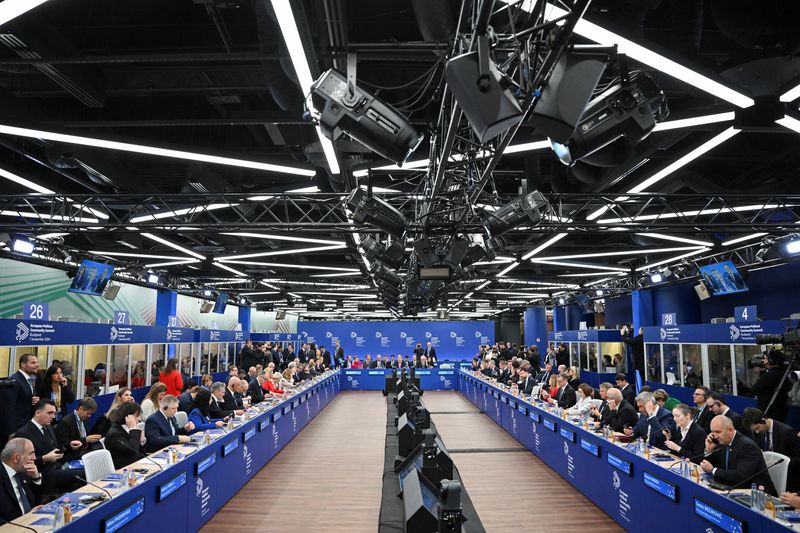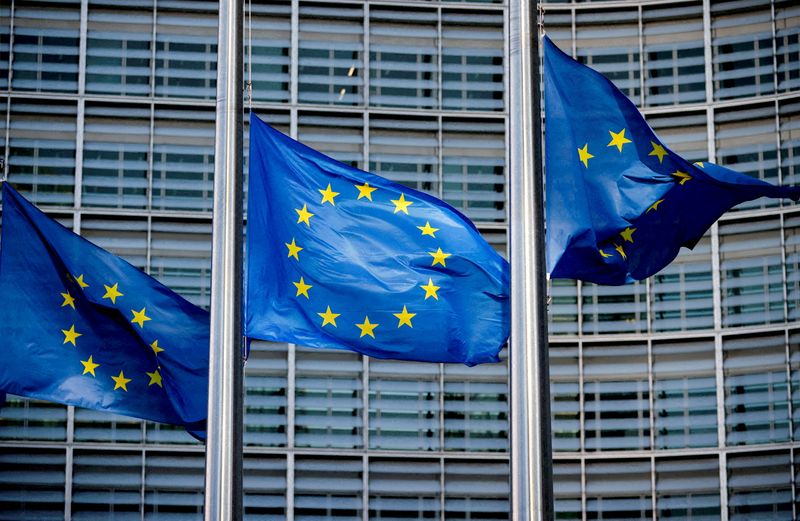By Krisztina Than and Philip Blenkinsop
BUDAPEST (Reuters) -European leaders gathered on Thursday in the shadow of Donald Trump's election victory and said they agreed on the need to take more responsibility for their security and rely less on the United States.
Trump's reelection is a major challenge for Europe, opening an era of huge uncertainty at a time when the continent is struggling to find unity and its two biggest powers, Germany - whose government just fell apart - and France, are weakened.
Trump's relationship with many of his European peers was rocky for much of his first term. Since then, he has said he would not defend European allies unless they meet NATO targets on defence spending, expressed scepticism about the scale of U.S. support for Ukraine and has proposed tariffs on imports that would hurt European manufacturers.
"There was agreement that Europe should take more responsibility for its peace and security. To be blunt, we cannot wait for the Americans to protect us," Hungarian Prime Minister Viktor Orban said after more than 40 European leaders met in Budapest at a summit of the European Political Community.
The EPC was set up after Russia's 2022 invasion of Ukraine to link the EU and neighbours such as Britain, Turkey and Ukraine itself.
Orban is one of Trump's few close allies among European leaders, and has cheered his reelection.
Other leaders had a similar message on boosting European defence in a clear signal to the Republican president-elect, who has repeatedly criticized the trans-Atlantic NATO alliance.
"We cannot delegate our security to the Americans forever," French President Emmanuel Macron, who has long pushed Europe to build up cooperation on defence, told fellow leaders.
"We need to be able to defend ourselves," he told the summit, warning that Europe must not become a weak "herbivore" surrounded by "carnivores".
STRONG EUROPE, STRONG AMERICA
But in a sign of the major challenges facing Europe in the wake of Trump's victory, other European leaders disagreed with Orban on support for Ukraine. The Hungarian leader has said Europe must reconsider that support while others want it to continue.
European Commission chief Ursula von der Leyen was among many stressing the importance of Europe and the United States continuing to support Ukraine against Russia.
"It is in all our interests that the autocrats of this world get a very clear message that there is not the right of might, that the rule of law is important," said von der Leyen, who later had a phone call with Trump.
Ukrainian President Volodymyr Zelenskiy said it was too early to predict what course Trump would take, but that a strong America would be good for Europe and vice versa.
"Of course, we cannot yet know what his actions will be. But we do hope that America will become stronger. This is the kind of America that Europe needs. And a strong Europe is what America needs, to my mind," Zelenskiy said.
Others were blunt in expressing their concerns about Trump.
Finland's Prime Minister Petteri Orpo said he was worried about the prospect of a trade war: "It should not be allowed to happen. Let's now try to influence the U.S. and Trump's future policy so that he understands the risks involved."

Adding to the uncertainty hanging over the Budapest gathering, Germany's three-party government broke apart on Wednesday evening as Chancellor Olaf Scholz sacked his finance minister and paved the way for a general election.
"One thing is for sure, Europe is not strong without a strong Germany," European Parliament President Roberta Metsola said.
